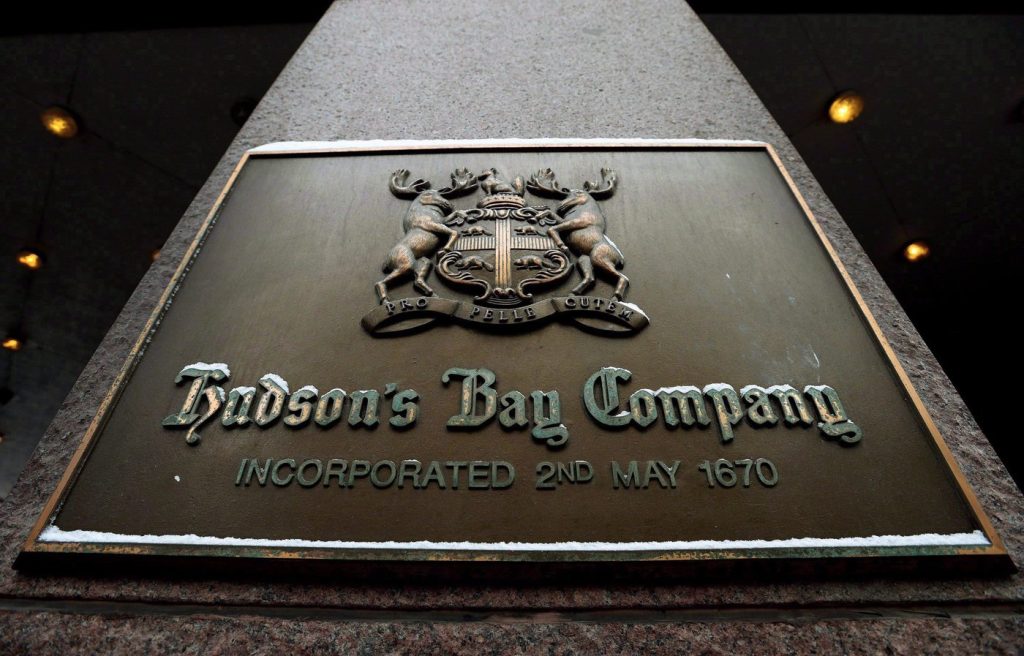TORONTO – The historic Hudson’s Bay Company (HBC), Canada’s oldest company established in 1670, faces imminent liquidation, threatening over 9,000 jobs across its retail operations. The department store chain revealed on Friday its plans for full liquidation, pending a court appearance scheduled for Monday. This decision comes after the company failed to secure the necessary financing to continue operations amid significant financial struggles.
With a current portfolio of 80 stores, Hudson’s Bay cited “exhaustive” efforts to find a viable path forward, but ultimately concluded that a complete liquidation is likely the only available option. This closure would affect not only the Hudson’s Bay stores but also three Saks Fifth Avenue locations and 13 Saks Off 5th outlets, all of which operate under a licensing agreement.
Despite the precarious situation, HBC’s management, led by president and CEO Liz Rodbell, expressed optimism for a last-minute financial solution. The company aims to engage with key stakeholders, particularly landlord partners, in hopes of avoiding a full shutdown. Rodbell emphasized the overwhelming support from customers and employees, who have shared their personal connections to the brand over generations. “These powerful experiences remind us why we must continue to pursue every possible opportunity to secure the necessary support from key landlords and other stakeholders to save The Bay,” she stated.
The urgency of HBC's financial distress became clear when the company filed for creditor protection with the Ontario Superior Court of Justice. A week earlier, the filing revealed that HBC is grappling with dwindling consumer spending, trade tensions between Canada and the U.S., and a post-pandemic decline in foot traffic to downtown locations. The court application disclosed that the company owes over $950 million to its creditors, which include prominent fashion brands such as Ralph Lauren, Chanel, Columbia Sportswear, Diesel, and Estee Lauder.
Jennifer Bewley, the chief financial officer, highlighted that the company had to defer payments to creditors due to severe cash flow problems. Notably, HBC faced drastic measures, including a landlord allegedly locking the company out of a Sydney, N.S. store, with bailiffs attempting to seize merchandise from another location in Sherway Gardens, a mall in suburban Toronto.
Initially, the March 7 filing was not intended to serve as a precursor to closure. The goal was to keep as much of the business operational as possible. However, due to limited access to debtor-in-possession financing following the creditor protection filing, HBC's situation quickly deteriorated. This limited funding led to the conclusion that store-by-store liquidation might be the only attainable route forward.
The company had previously positioned itself for restructuring in the U.S. by spinning off its Saks locations, which provided a form of insulation against the current financial quagmire now enveloping its Canadian arm. If liquidation occurs, it won't just impact HBC’s national retail footprint—essentially crippling the country’s retail workforce—but will also leave sizable gaps in mall anchor spaces and high-demand retail districts where HBC operated.
With a significant concentration of stores in Ontario—32 locations employing more than half of its workforce—the closure would deeply affect the provincial economy. Other provinces host HBC stores as well, including 16 in British Columbia and 13 each in Alberta and Quebec, while Manitoba, Nova Scotia, and Saskatchewan have two stores each. The Saks stores operate across Ontario and Alberta, with additional locations for Saks Off 5th in various provinces including Ontario, B.C., Alberta, Quebec, and Manitoba.
For decades, HBC has been part of Canada's retail landscape, but leadership has shifted to American ownership. Richard Baker, a prominent real estate investor, acquired HBC in 2008 for $1.1 billion. Under his guidance, the company has seen various transformations, including going public and then private again, with significant shareholder pressure as its stock value fluctuated. Baker acknowledged the challenges ahead, stating that it would require “patient capital and a long-term view to fully unleash HBC's potential at the intersection of real estate and retail.”
However, repeated store closures and layoffs over recent years reveal ongoing difficulties for HBC, which faces intense competition from other retailers and online giants like Amazon, further complicating its road to recovery.










